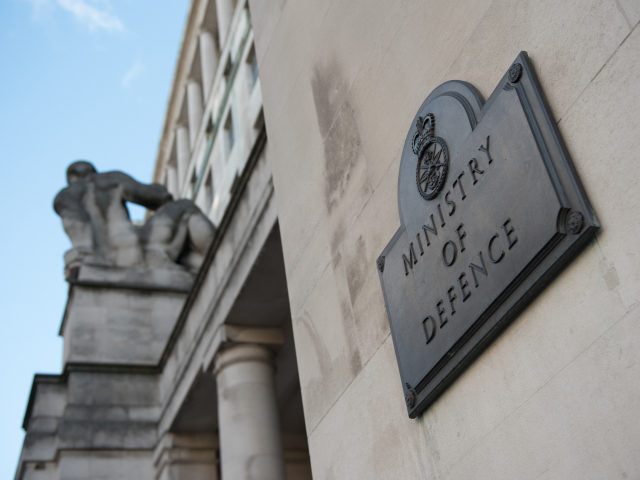Classified Ministry of Defence documents which included details of HMS Defender, the British naval ship involved in recent tensions with Russia after passing through the Black Sea, were found left at a bus stop, in just the latest instance of government officials losing sensitive data.
The BBC reported on Sunday that an anonymous member of the public had found the sensitive material — some of which marked “SECRET UK EYES ONLY” and “OFFICIAL SENSITIVE” — in what it described as a “soggy heap” behind a bus stop in Kent, England, on Tuesday.
Some of the documents discussed Moscow’s possible reaction to HMS Defender passing through Crimean waters. Just a day after the documents were found, the Russian Federation claimed that it had fired warning shots along the path of the British destroyer as it passed through the disputed waters, allegations of aggression London later denied. Escalating tensions, Russia later said that next time, it would be firing “right on target”.
The broadcaster also claimed that the documents included plans for a military presence in Afghanistan after the NATO operation ends there.
The BBC believes that the documents, some 50 pages in total, originate from the office of a senior Ministry of Defence (MoD) official.
According to The Telegraph, the government has launched an investigation into how the documents had become so carelessly misplaced.
An MoD spokesman told media that it was aware that the documents had been lost. He said: “The Ministry of Defence was informed last week of an incident in which sensitive defence papers were recovered by a member of the public.
“The department takes the security of information extremely seriously and an investigation has been launched.
“The employee concerned reported the loss at the time.
“It would be inappropriate to comment further.”
On the matter of the report related to HMS Defender, the spokesman said: “As the public would expect, the Ministry of Defence plans carefully.
“As a matter of routine, that includes analysing all the potential factors affecting operational decisions.
“HMS Defender conducted innocent passage through Ukrainian territorial waters in accordance with international law.”
Shadow Defence Secretary John Healey said the episode was “as embarrassing as it is worrying for ministers”, and urged the government to confirm to the British public that national security had not been undermined and that “no military or security operations have been affected and that the appropriate procedures are in place to ensure nothing like this happens again”.
This would not be the first time that sensitive or confidential material had been misplaced in public.
In 2008, top-secret files on al-Qaeda were left on a train in London, while in 2000, an MI6 laptop containing notes for agents was left at a tapas bar near the Secret Intelligence Service headquarters in London.
The Ministry of Defence has lost other sets of data or devices in the past. In 2008, the personal details of 600,000 people who had either been recruited or expressed an interest in joining the military were lost when a laptop was stolen from the back of a car, while in the same year, an Army captain’s laptop was stolen from under his chair while he was eating at McDonald’s. In July of that year, the MoD admitted that more than twice as many laptops than it had previously thought had been lost or stolen since 2004, and confirmed it last lost 121 memory sticks.
The government has also lost personal data belonging to the public, having lost in the post discs containing the details of up to 25 million people in 2007.
When the government was considering domestic vaccine certificates, the Liberal Democrats opposed the idea, with Alistair Carmichael MP saying that the government cannot be trusted with such sensitive information.
Mr Carmichael had said in April: “There are some things in life that just don’t mix: oil and water; water and electricity; government and people’s data. They [government] don’t respect it. Eventually, you know it’s going to be hacked or be left on a memory stick in the back of a taxi somewhere.
“That’s why people are right to be sceptical. Governments have to earn trust, and for that sort of intimate, personal detail, I just don’t trust them. And I don’t think anybody should.”

COMMENTS
Please let us know if you're having issues with commenting.